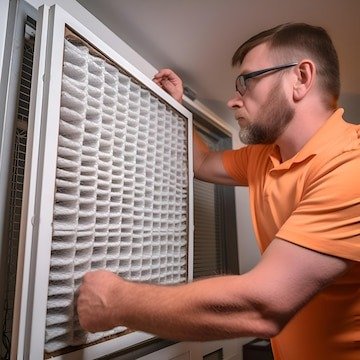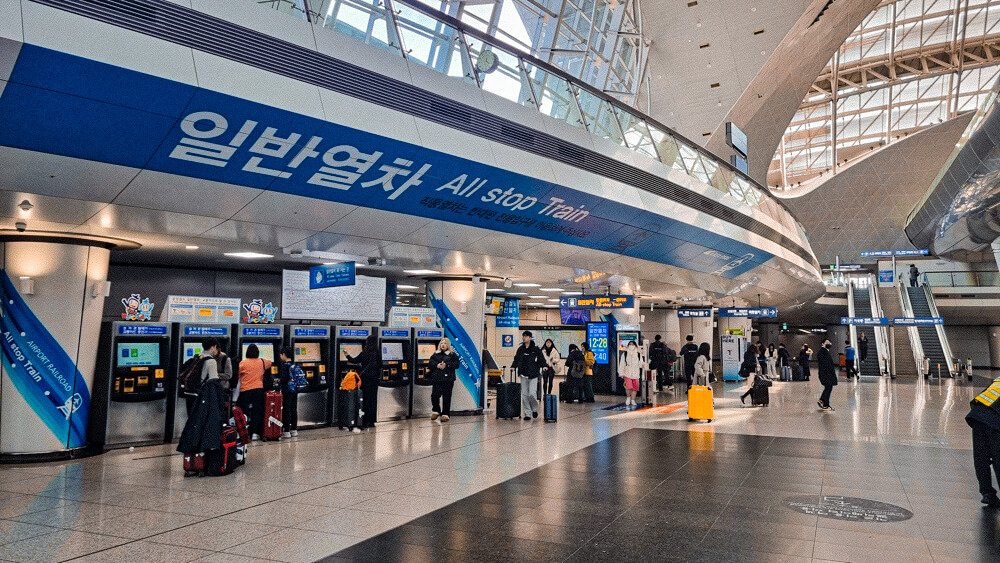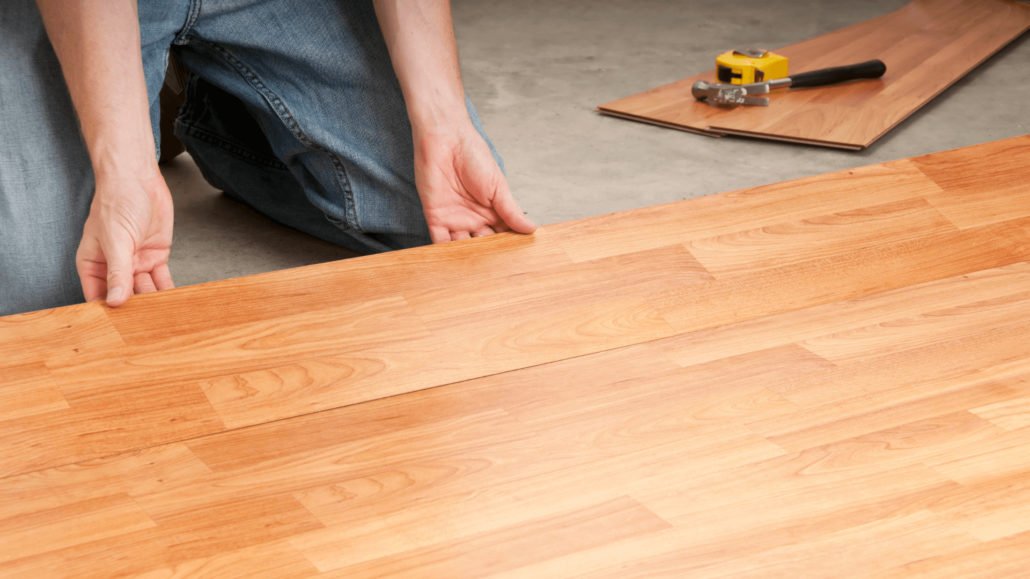Introduction
When maintaining your HVAC system, air filters play a crucial role. They help keep your home’s air quality high and protect your system from dust and debris. Choosing the correct type of filter can make all the difference in your system’s airflow, efficiency, and longevity. In this article, we will explore which HVAC nested glass filters provide the best airflow, delve into different types of air filters, and discuss their pros and cons. By the end, you’ll have a clearer idea of which filter type is best for your HVAC system.
What Tools Can Supercharge Your HVAC Estimating Process
What Is the Most Effective Type of Air Filter?
The effectiveness of an air filter largely depends on what you are trying to achieve. You might prioritize filters with a higher MERV (Minimum Efficiency Reporting Value) rating to remove airborne particles and allergens. However, if you focus on improving airflow and keeping your HVAC system running efficiently, you might need a filter that balances filtration capacity and airflow.
Fibreglass filters, pleated filters, and even HVAC nested glass filters all offer unique benefits in terms of air filtration. However, pleated filters generally offer better filtration of smaller particles like dust, pollen, and pet dander, while fibreglass filters typically allow for better airflow but with less filtration efficiency.
Key Takeaway: There is no single “most effective” type of air filter—effectiveness depends on the specific needs of your HVAC system and your home’s air quality requirements.
What Type of Filter Is Best for HVAC?
When selecting the best filter for your HVAC system, you must consider both filtration efficiency and airflow.
- Fibreglass Filters – These are often the go-to choice for homeowners because they are inexpensive and allow for excellent airflow. However, they only provide essential filtration and do not capture fine particles, making them less effective for improving indoor air quality.
- Pleated Filters—These filters are generally thicker and have more surface area for capturing particles. They can trap smaller pollutants but may restrict airflow if they are too dense. This could make your HVAC system work harder, affecting its efficiency and lifespan.
- HVAC Nested Glass Filters – While not as commonly known, nested glass filters balance fibreglass and pleated filters, providing adequate airflow and improving particle capture. They are designed to improve both air quality and system efficiency.
Best Choice: Fiberglass filters often provide the least resistance for homeowners focused on airflow. However, nested glass filters can be a solid option for those looking to improve both air quality and airflow.
Are Fiberglass Filters Better for Airflow?
Fibreglass filters are generally better for airflow than pleated or high-density filters. These filters are made from strands of fibreglass layered over each other, which creates more significant gaps for air to pass through. This reduces resistance and allows your HVAC system to circulate air more efficiently. However, the downside is that they are ineffective at trapping smaller particles, such as pollen or pet dander.
Fibreglass filters are ideal for people who do not have significant allergies or respiratory issues. They allow for better airflow but do not improve indoor air quality as much as pleated filters.
Pros of Fiberglass Filters for Airflow:
- Low resistance, enabling better airflow
- Affordable and widely available
- Adequate for homes without severe air quality concerns
Cons:
- Poor filtration efficiency for small particles
- It may need more frequent replacement than pleated filters.
What Furnace Filter Has the Best Airflow?
Regarding the best airflow, fibreglass furnace filters generally outperform other types. These filters offer the most minor restriction to air circulation, ensuring that your HVAC system doesn’t have to work harder than necessary to maintain your desired temperature.
However, HVAC Nested Glass Filters can also provide a good balance between airflow and air filtration. These filters are designed to allow air to pass through without the same level of restriction seen in pleated filters, making them a good alternative for those who want slightly better filtration without compromising airflow.
Pros and Cons of Fiberglass Air Filters
Pros:
- Cost-Effective: Fiberglass filters are among the most affordable options on the market.
- High Airflow: Fiberglass filters allow for excellent airflow due to their low resistance, which is beneficial for HVAC efficiency.
- Widely Available: These filters are easy to find and come in standard sizes like 16x25x1, making them convenient to replace.
Cons:
- Low Filtration Efficiency: Fiberglass filters do not effectively capture fine particles, allergens, or pet dander.
- Frequent Replacement: Due to their lower filtration capacity, fibreglass filters must be replaced more frequently, usually every 30 days.
The Truth About Home Air Filters
Many homeowners assume that a higher price or a denser filter automatically means better performance when it comes to home air filters. However, this is not always the case. A higher-rated MERV filter may remove more airborne particles and restrict airflow, making your HVAC system work harder.
Key Facts:
- Higher MERV Ratings Restrict Airflow: While higher MERV-rated filters trap more particles, they also reduce airflow. This could negatively impact your HVAC’s efficiency if the system isn’t designed to handle the added resistance.
- Cheaper Filters Still Have Their Place: In some cases, a lower-cost filter like fibreglass may be more than adequate, especially if indoor air quality is not a primary concern.
- Regular Maintenance is Key: Regardless of the type of filter, it’s crucial to change it regularly—usually every 30 to 90 days, depending on usage and filter type. Regular replacements ensure both excellent airflow and filtration.
Do Pleated Air Filters Restrict Airflow?
Yes, pleated air filters do restrict airflow to a certain degree. Because they have more surface area to capture particles, they tend to have smaller gaps for air to pass through. This can create a bottleneck effect, where the HVAC system has to work harder to push air through the filter.
However, not all pleated filters restrict airflow equally. Some are designed with larger pleats to allow more air to pass through while still capturing particles. Choosing a pleated filter that matches your HVAC system’s airflow requirements is essential.
Pleated Air Filter vs Non-Pleated Air Filters
Pleated Filters:
- Advantages: Pleated filters can capture finer particles like dust, pollen, and pet dander, making them ideal for improving air quality. They also tend to last longer than non-pleated filters.
- Disadvantages: The increased filtration capacity often comes at the cost of airflow, as these filters restrict the amount of air that can pass through them.
Non-Pleated Filters (like Fiberglass):
- Advantages: Non-pleated filters like fibreglass offer superior airflow and are less likely to cause strain on your HVAC system.
- Disadvantages: They are less effective at capturing smaller particles, so they don’t improve indoor air quality as much as pleated filters.
Non-Pleated Air Filters: A Closer Look
Non-pleated air filters, such as fibreglass or flat-panel filters, allow more air to pass through, benefiting HVAC efficiency. However, they tend to have a lower filtration capacity, meaning they won’t trap as many particles as pleated filters. This makes them less suitable for households with allergies or respiratory conditions.
Non-pleated filters are often the go-to for homeowners looking for cost-effective, high-airflow solutions, especially in homes where indoor air quality is less of a concern.
Best Air Filters for Home AC
For those seeking the best balance of airflow and filtration for home AC systems, HVAC Nested Glass Filters and low-MERV pleated filters are worth considering. They offer reasonable air filtration without putting too much strain on the system. Homeowners with pets, allergies, or asthma may opt for higher MERV-rated pleated filters but should be aware that these may reduce airflow and require HVAC system adjustments.
Top Picks:
- Fiberglass Furnace Filters 16x25x1: Great for airflow, inexpensive, and easy to replace.
- HVAC Nested Glass Filters: Good balance of filtration and airflow, suitable for various environments.
- MERV 8 Pleated Filters: Offers improved air quality without excessive airflow restriction.
Air Conditioner Filter Replacement
Replacing your air conditioner filter is essential for maintaining air quality and system efficiency. Failing to replace your filter regularly can result in poor airflow, which can cause your system to work harder and increase energy costs.
How Often Should You Replace Filters?
- Fiberglass Filters: Every 30 days
- Pleated Filters: Every 60-90 days, depending on usage
- HVAC Nested Glass Filters: Typically every 60 days
Always refer to the manufacturer’s guidelines for your HVAC system to ensure optimal performance. Regular replacement can prevent breakdowns and improve indoor air quality.
Final Thoughts
When selecting an HVAC air filter, your choice should balance the need for airflow and filtration. Fibreglass filters offer the best airflow but lower filtration capacity, making them ideal for homes without significant indoor air quality concerns. While more effective at capturing small particles, pleated filters can restrict airflow and strain your HVAC system. HVAC nested glass filters offer a middle ground, providing efficient airflow and moderate filtration. Ultimately, the best air filter depends on your needs and your HVAC system’s requirements.
FAQs
Q1: What is the best type of filter for airflow?
- Fiberglass filters offer the least resistance and best airflow but provide minimal filtration.
Q2: Are pleated filters bad for my HVAC system?
- Not necessarily. Pleated filters can restrict airflow, so ensuring your system is compatible with them is essential.
Q3: How often should I replace my HVAC filter?
- It depends on the type. Fibreglass filters should be replaced every 30 days, while pleated filters can last 60-90 days.






